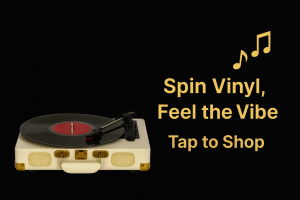Some songs don’t just define a moment—they define an entire era. Call Me is one of those tracks.
With its pulsing beat, electrifying guitar riffs, and Debbie Harry’s unmistakable vocals, it became a classic rock artists anthem that blurred the lines between rock, disco, and new wave.
Originally created for American Gigolo, the song quickly took on a life of its own, topping charts and becoming an essential piece of 80s music history.
But what makes Call Me more than just another hit single?
Why does it still feel just as bold and irresistible decades later?
Let’s take a deep dive into the energy, attitude, and lasting influence of this unforgettable track. 🎶📞🔥
- Writers: Debbie Harry and Giorgio Moroder
- Album: American Gigolo: Original Soundtrack (1980)
- Producer: Giorgio Moroder
📝 Background & Meaning:
“Call Me” was written by Debbie Harry (lead singer of Blondie) and Giorgio Moroder (renowned electronic music producer and composer).
The song was created as the theme for the 1980 film American Gigolo, starring Richard Gere.
It became an instant hit and topped the Billboard Hot 100 chart for six consecutive weeks.
Originally, Giorgio Moroder had approached Stevie Nicks (of Fleetwood Mac) to collaborate on the track, but she declined due to contractual obligations.
Moroder then approached Debbie Harry, who instantly clicked with the instrumental track he had prepared.
Debbie Harry wrote the lyrics and vocal melody in just a few hours, capturing the seductive, fast-paced, and glamorous energy of the film’s protagonist and setting.
The song represents sexual freedom, allure, and independence while also reflecting the carefree excess of the late 1970s and early 1980s urban nightlife culture.
The lyrics, sung from the perspective of a confident and charismatic lover, exude a sense of unapologetic sensuality and bold desire.
🎤 Key Themes:
- Sexual Liberation: The lyrics celebrate uninhibited desire and sensuality.
- Urban Glamour: The song reflects the glitzy, fast-paced world of nightlife and high fashion.
- Connection and Desire: The repeated refrain, “Call me!”, represents a yearning for intimacy and connection.
- Soundtrack to Freedom: The song’s pulsating beat captures the liberating energy of independence and confidence.
🎧 Notable Lyrics:
“Call me on the line / Call me, call me any, anytime!”
- A direct and confident invitation, expressing bold desire and availability.
“Cover me with kisses, baby / Cover me with love.”
- Sensual imagery highlighting romantic and physical intimacy.
“Color me your color, baby / Color me your car.”
- Suggests a metaphorical surrender to someone else’s desires or perspective.
🎸 Musical Highlights:
- Driving Guitar Riff: The song opens with an electrifying guitar riff that sets a high-energy tone.
- Debbie Harry’s Commanding Vocals: Her powerful, sultry voice conveys both strength and sensuality.
- Giorgio Moroder’s Synth Work: Moroder’s signature synth-heavy production gives the track an unmistakable disco-rock hybrid feel.
- Pulsating Drumbeat: The steady, urgent rhythm drives the song with relentless momentum.
- Dynamic Build-Up: The song continuously escalates in energy, creating a sense of urgency and excitement.
🌍 Cultural Impact:
- “Call Me” became Blondie’s biggest hit and one of the defining anthems of the 1980s.
- It’s one of the best-selling singles of all time, symbolizing the golden era of new wave, rock, and disco fusion.
- The track became synonymous with the glamorous, edgy vibe of American Gigolo.
- It has been featured in countless movies, TV shows, and commercials, becoming a timeless symbol of urban nightlife and seduction.
- Debbie Harry’s iconic style and commanding stage presence in the song’s music video and live performances further solidified her status as a rock and fashion icon.
🎤 “Call Me” Fun Fact:
- “Call Me” was recorded in just a few takes, with Debbie Harry delivering her signature vocals effortlessly.
- Giorgio Moroder originally titled the instrumental demo “Man Machine” before Debbie Harry rewrote it as “Call Me.”
- Debbie Harry reportedly wrote the lyrics from the perspective of Richard Gere’s character in American Gigolo, blending sensual confidence with vulnerability.
🔑 What It Represents:
“Call Me” isn’t just a song—it’s a snapshot of a specific cultural moment where rock, disco, and new wave collided to create something unforgettable.
It represents:
- A fearless embrace of sensuality and desire.
- The blending of rock and disco into a sleek, radio-friendly sound.
- The cultural energy of early 1980s nightlife and urban sophistication.
- Debbie Harry’s charisma and Giorgio Moroder’s pioneering production style.
With its infectious rhythm, bold lyrics, and Debbie Harry’s unforgettable vocals, “Call Me” remains one of the most iconic songs of the 1980s, embodying the raw energy, glamor, and liberation of its era. 🎶📞✨
🎶 Why It Still Resonates Today:
“Call Me” remains one of the most electrifying tracks from the era when classic rock artists embraced the evolving sound of the 80s.
The fusion of rock and disco, driven by Giorgio Moroder’s production and Debbie Harry’s magnetic vocals, created an anthem that still feels fresh today.
Its infectious rhythm and bold energy make it a staple in films, fashion shows, and club playlists, proving that some songs never fade.
Beyond its chart-topping success, the song’s themes of confidence, sensuality, and independence continue to resonate with audiences.
Whether blasting through speakers at a high-energy party or adding a touch of nostalgia to a late-night drive, “Call Me” captures the thrilling urgency of living in the moment.
The call for connection in its lyrics still reflects modern desires in a world where instant communication is everything.
🔚 Closing Statement 🎶🔥
Few songs define an era quite like “Call Me.”
It’s bold, seductive, and irresistibly cool—just like classic rock artists who knew how to push boundaries and stay ahead of the curve.
Debbie Harry’s signature style and Giorgio Moroder’s futuristic production transformed what could have been a simple movie soundtrack into an unforgettable anthem of its time.
Whether you’re hearing it for the hundredth time or discovering it anew, one thing is clear—this song is a call that never goes unanswered. 🎵📞✨

